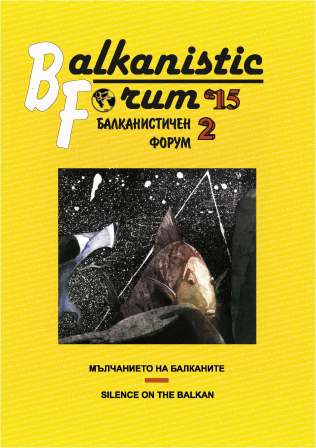Praying and praising the Messiah in silence (the movement of Shabbatai Zvi and its influence to the Jews in Ottoman Empire)
Praying and praising the Messiah in silence (the movement of Shabbatai Zvi and its influence to the Jews in Ottoman Empire)
Author(s): Vladimir YanevPublished by: ЮГОЗАПАДЕН УНИВЕРСИТЕТ »НЕОФИТ РИЛСКИ«
Summary/Abstract: The event that marked the Jewish history in the XVII century was the culmination of the messianic movement, which was conveyed through the image and the work of Shabbatai Zvi. It is known that during his mission, Shabbatai Zvi stayed in Macedonia, where he gained a lot of followers. One part of these followers of Shabbatai Zvi who remained loyal even after his islamization, formed the sect doenmeh – Islamized Jews in Thessaloniki. It is considered that the members of the sect doenmeh were only formally Muslims, because they believed in the messianic role of Shabbatai Zvi. Doenmeh lived quite apart from other Jewish population in Thessaloniki, married only among themselves and avoided mixed marriages. They believed that a time will come when all the Jews will recognize Shabbatai Zvi for their Messiah, thus becoming believers as they are. Because of that, compatriots who believe should not be avoided, but also they should not enter into the marital relations until they recognize the Messiah. According to them, the afterlife existed only for the believers. They had two names for the afterlife, one official – Muslim and the other secret – Jewish. In their inner life Doenmeh followed Moses Laws; they had their spiritual court that judged in accordance with Jewish religious laws, which were mandatory for all members of the sect. The biggest holiday of the Doenmeh was August 9, the day of destruction of Jerusalem temple and the day of birth of Shabbatai Zvi. It is characteristic that the synagogue has always been surrounded and enclosed by the houses of the Doenmeh, because they were often persecuted by the Ottoman government and Muslim authorities.
Journal: Балканистичен Форум
- Issue Year: 2015
- Issue No: 2
- Page Range: 107-111
- Page Count: 5
- Content File-PDF

